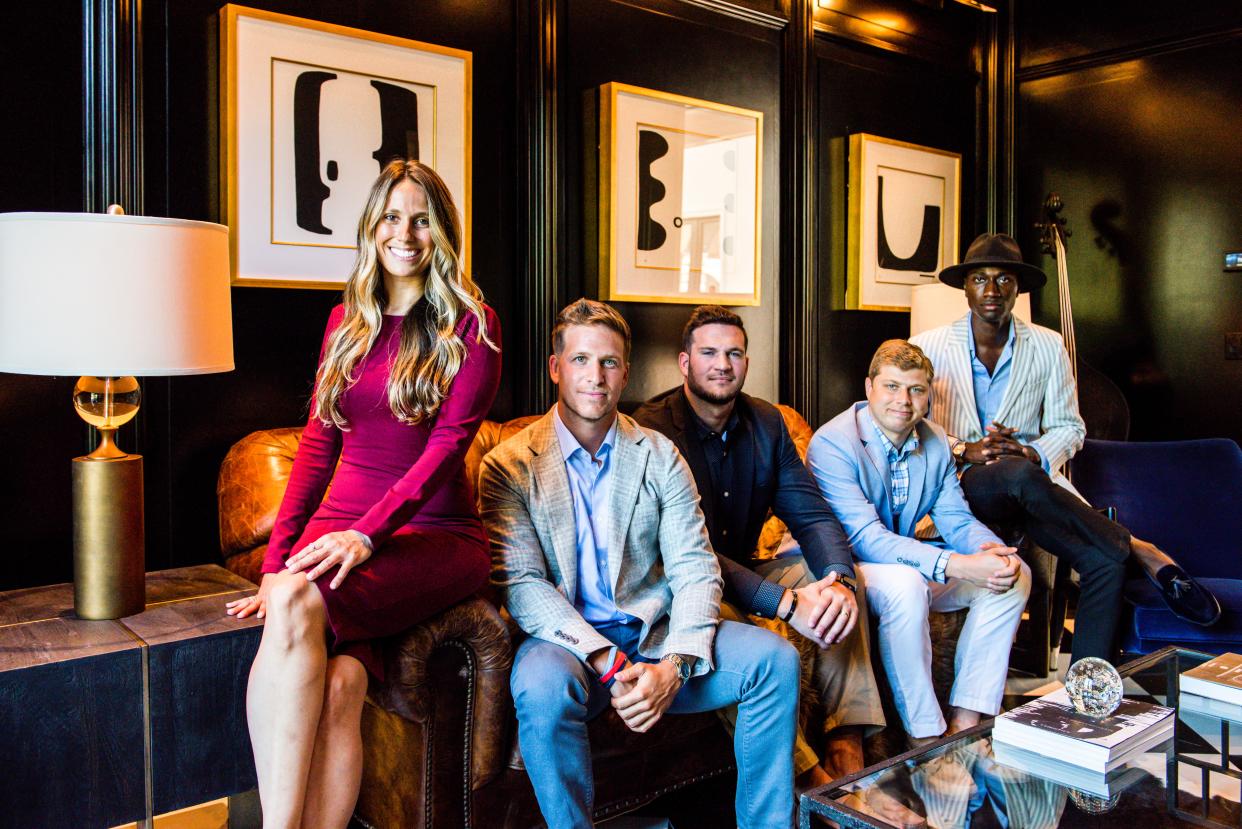People Are Calling Out Million Dollar Beach House for ‘Racist Vibes’

Million Dollar Beach House, now streaming on Netflix, has many of the ingredients that make a great reality show: excessive wealth; people screaming “I’m a very private person!” on a series that will be available to millions; a man named Neil St. Clair who describes himself as a “bathroom aficionado”; and, as promised, $40 million beach houses.
And the show's six-episode first season does its best to entertain amid a bleak news cycle: It opens with a retired male model describing a luxury toilet as “the shitter from the future,” hits its stride with an all-office meeting on a yacht, and concludes with a $30,000 house party.
The real estate show should be the natural successor to Selling Sunset, a mini phenomenon that blended the best of Real Housewives with the #BossBitch aesthetic of 21st-century feminism. The powers that be at Netflix have accurately clocked that homebound Americans—many of whom are scrambling to keep their homes amid an eviction and unemployment crisis—would be captivated by a show about luxury houses and high-paying jobs.
What Million Dollar Beach House neglects to take into account is that America is also going through a reckoning with our history and current reality of profound racism. The urgency of this summer’s Black Live Matter uprising comes on the heels of the #MeToo movement. And while reality shows aren’t really expected to take on these issues, they should, as a brash Long Island realtor might say, “read the fucking room.”
As Million Dollar Beach House rose to the second most-watched series on Netflix in the U.S. this weekend, Twitter became flooded with critical takes about the “racist vibes” among the show's realtors. “If you’ve ever had trouble understanding microaggressions watch episode 1 of Netflix's Million Dollar Beach House,” wrote one user. It was hard for me to watch and not to think, “Surely, this is an anti-bias training put together by an overzealous HR department.”
Million Dollar Beach House follows a team of five realtors: three white men, a Black man, and a white woman. The main drama revolves around a power struggle between Peggy, the only woman broker, and the one Black broker, Noel. The others—Michael, J.B., and Jimmy—circle them, stoking the conflict like children pushing a playground merry-go-round to its maximum speed.
Right away a fight breaks out between Peggy and Noel: Peggy takes a prospective buyer to one of Noel’s listings, where he is overconfident and underprepared. In return, Peggy bullies and humiliates him. It should be classic reality-TV drama, but the underlying social dynamic is undeniable. Noel is the only person of color in the office, and his white colleagues act repulsed by his confidence, style, and ambition—qualities they admire in each other.
Peggy, on the other hand, is the only woman in a boys’ club. Her male coworkers demonstrate sex positions during home stagings and hire models in skintight jumpsuits to work at an open house party, telling prospective buyers, “They come with the house.” When she successfully schmoozes a client, they complain, “Peggy has got a lot to say. I do wish she would let me take the lead,” and “Peggy should let me handle this conversation.”
The viciousness of Peggy and Noel’s conflict is a gigantic bummer because it so perfectly encapsulates the way racism and sexism keep people of color and women fighting for scraps. The show, even unintentionally, illustrates how Black women are cut out entirely.
In a less significant way, the conflict is also a pity because this otherwise would be Peggy's and Noel’s star turns—unlike the white men with whom they share the screen, who range from unremarkable to dude-on-public-transit-who-won’t-stop-staring-at-your-ass.
Noel is a former child Ping-Pong star, a dandy-dressing fraternal twin who dreams of launching a real estate empire with Joel—yes, the twins’ names rhyme!—his actor-model brother who is fluent in Korean. He’s an expert at tossing off wild one-liners, like “If the price is right, everything is for sale.”
Peggy, when she’s not throwing microaggressions at Noel, carries the weight of making the show entertaining. A hyper-competent schmoozer whose nickname is Deals in Heels, she has the ability to reel off full paragraphs of insults. “As of today, I do not want to be associated with you and I would really appreciate it if my name never comes out of your mouth,” she tells a realtor named Sara, with such little apparent warning that Sara squeals, in confusion, “I would love to work with you! I have never had any issues!”
This should be meme material. Instead, it’s lost in a just-off-Southampton sea of microaggressions. “I just sold a house for $10 million,” notes Jimmy, the least seemingly problematic realtor. Not with smugness but with some wonder, he adds, “I closed on four houses while they were sitting around, arguing.” It’s the same sentiment the white male bosses of Selling Sunset voice, more condescendingly, to their employees. (A show, it's worth nothing, that avoids confronting office racism by casting mostly white people, the exception being a single biracial person.)
Million Dollar Beach House is meant to be a fantasy escape to a luxury vacation and a life where working hard equals getting rich. Accidentally, it demonstrates how, exactly, white men get ahead of women and people of color in the same jobs. It's a perfect primer on the problem with being the only person of color in an office of perfectly “nice” white people. It’s reality; it’s just not fun TV.
Jenny Singer is a staff writer for Glamour. You can follow her on Twitter.
Originally Appeared on Glamour

